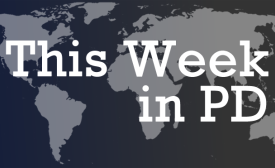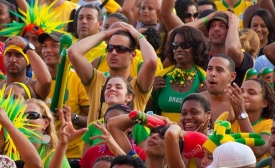sports diplomacy
In Iran, the cycle of presidential elections has coincided with the culmination of the nation’s World Cup qualifying campaigns; for a country whose relationship with the international community has been so complex and problematic, the presence of Team Melli (as they are known) at the tournament has taken on immense significance.

As the 2014 FIFA World Cup kicks off to fanfare and protest, we see how soccer and sports diplomacy can improve the image and soft power of Brazil.
Filipino and Vietnamese troops play sports on disputed isle in the South China Sea.
While mega-events can involve colossal facilities of little use post-event, they can also provide reputational benefits and be seen as an investment in a nation's brand.
As Brazil prepares for the World Cup kick-off this Thursday, CPD asked a few experts from the public diplomacy community for their thoughts on what hosting the tournament means for Brazil’s soft power.

The World Cup might not be all hearts and roses for Brazil.
Twitter, YouTube and Facebook are expected to be busy during the Brazil tournament, which an Adidas exec predicts will "undoubtedly be the most social World Cup ever and probably the most social event in history."
Michael Govan, LACMA CEO and director, talks with CPD about "Fútbol: The Beautiful Game," a LACMA exhibit devoted to diverse contemporary art focusing on this popular sport.







